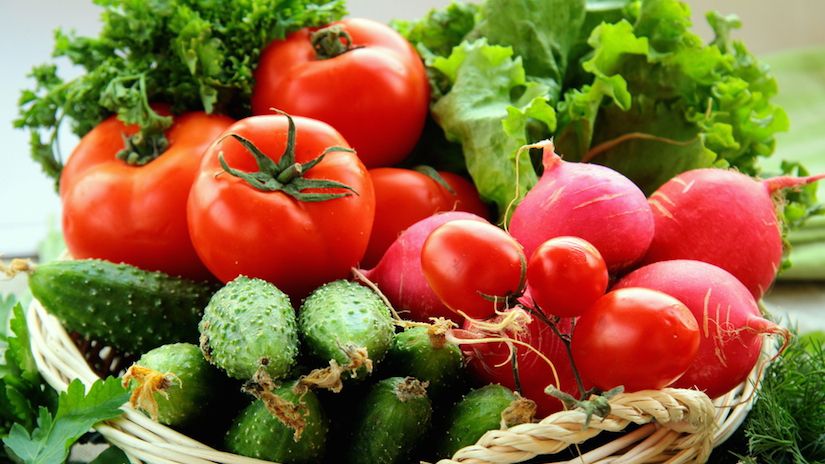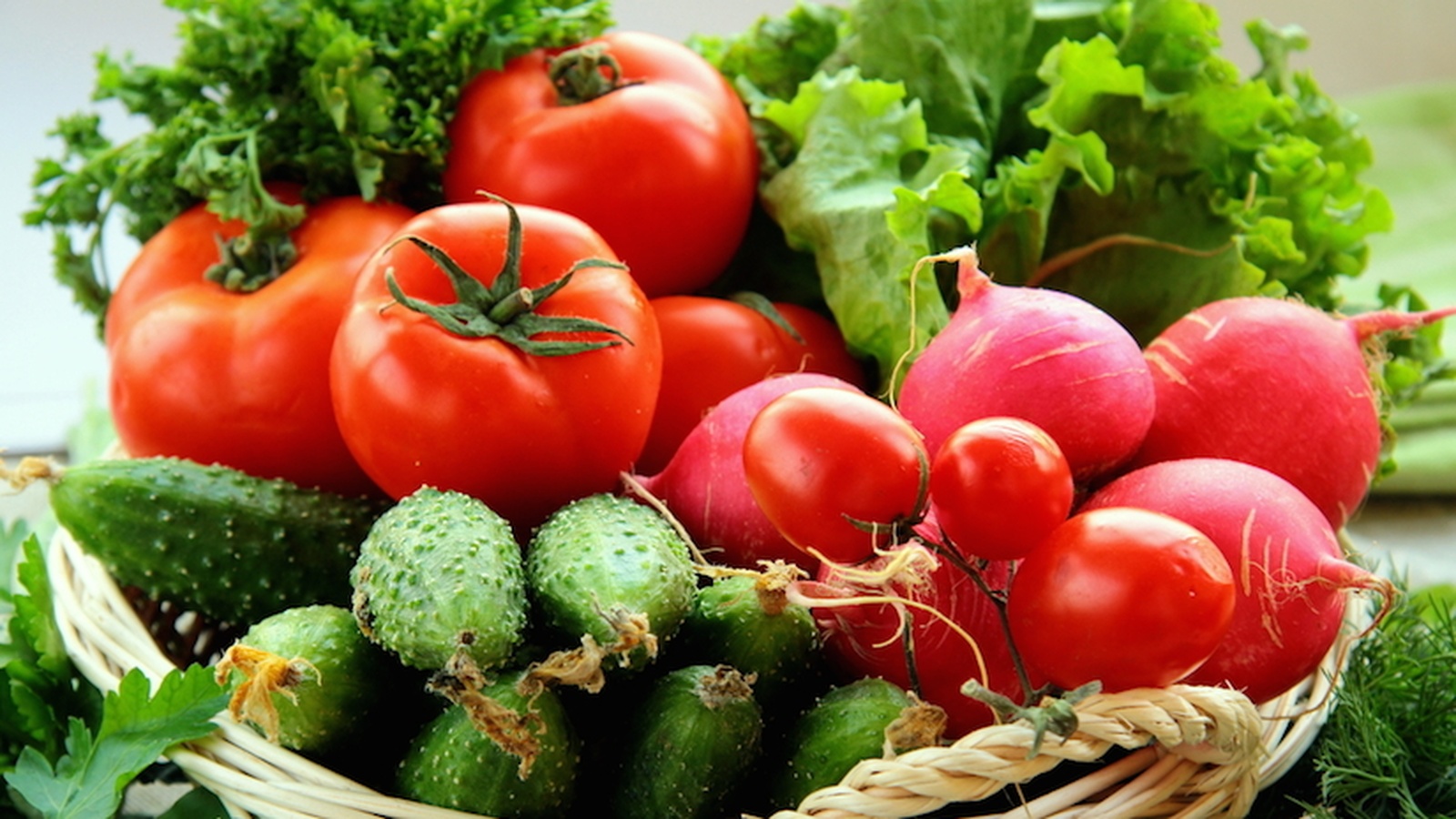How to Maintain A Healthy Colon

By: Dr Ben Kim
Keeping your colon clean provides a number of health benefits, the main ones being:
- A lowered risk of developing colorectal cancer, the second or third leading type of cancer in most industrialized countries
- A lowered risk of experiencing irritable bowel syndrome, chronic constipation, and chronic diarrhea
- A lowered risk of developing hemorrhoids
- Less objectionable gas production
- More efficient absorption of water and minerals
- A feeling of lightness, comfort, and well-being in your abdominal region
After food passes through your stomach and small intestine, the remaining material, mostly waste products in liquid form, move on to the first part of your large intestine -- your colon. Your colon is approximately 6 feet long and serves primarily to dehydrate liquid waste material. In order to understand how to keep your colorectal region clean and healthy, let's go over a few key details on how your large intestine works.
Movement of Waste Material
After you eat a substantial meal, your stomach expands enough to trigger a reflex that causes a contractile wave (called a peristaltic wave) to travel through your small intestine and push any liquid waste material (chyme) that is sitting in the last part of your small intestine into your large intestine.
Movement of waste material through your colon is facilitated by something called "haustral churning". Your colon is divided along its length into small pouches called haustra. When a haustrum is filled with substantial waste material, its muscular walls contract and push the waste material into the next haustrum. The contractile reflex that allows haustral churning is regulated by a division of your autonomic nervous system.
On average, your colon experiences anywhere from about 3 to 12 moderate waves of contractions every minute. After every substantial meal, your colon experiences a much larger contractile wave, called "mass peristalsis". Mass peristalsis serves to push waste materials from your transverse colon all the way to your rectum. In most people, mass peristalsis occurs about three times a day.
When your rectal pouch is distended with enough feces to trigger a contractile reflex, your feces are pushed out through your anus. When you consciously contract your abdominal wall, your diaphragm moves downward and helps open up muscles that line your anal sphincter. If you choose not to release stools when you experience an urge to do so, your reflex contractions may stop, in which case you likely won't have a significant bowel movement until the next mass peristalsis occurs.
Natural Ways to Keep Your Colorectal Region Clean and Healthy
Chronic constipation is the single greatest cause of having an unclean and unhealthy colorectal region because over time, constipation causes your bowel walls to face excessive pressure -- pressure that is created by you straining to go and by your colon walls creating stronger contractions to help eliminate hard stools. Excessive pressure on your colon walls can cause little pouches called diverticuli to form. Sometimes, small bits of waste material can get lodged in diverticuli.
Eat substantial meals; don't nibble on small amounts throughout the day. Each time you eat a substantial meal, you stimulate stretch receptors in your stomach that are responsible for triggering normal and mass peristaltic waves throughout your small and large intestines, ensuring regular movement of waste material through your colon and rectum. Also, eating substantial meals allows significant "chunks" of waste materials to travel together through your colon, turn into well formed stools, and get eliminated from your body in an efficient manner.
Don't suppress the desire to go. If you regularly suppress the urge to have a bowel movement, waste materials spend more time than is optimal in your colon, causing excessive dehydration of waste materials and formation of hard stools.
Ensure adequate intake of water and/or water-rich food. Water helps to move waste materials along, and is absorbed throughout the entire length of your colon. Insufficient water intake can cause stools to form far before waste materials reach your rectal pouch, which can cause constipation. This doesn't necessarily mean that you need to drink several glasses of water per day. If you eat plenty of water-rich plant foods, then you can rely on your sense of thirst to dictate how much water to drink.
Eat fiber-rich foods regularly. Fiber adds bulk to the boluses of waste material that travel through your large intestine, and this bulk is essential to your colon's ability to turn waste materials into well formed stools. A diet that is rich in vegetables, fruits, legumes, and whole grains ensures high fiber intake.
Ensure adequate vitamin D status. Adequate vitamin D status significantly lowers your risk of developing all types of cancer, including colorectal cancer. When you aren't able to get regular exposure to sunlight, look to ensure adequate vitamin D status by eating healthy foods that contain vitamin D, such as wild salmon and a high quality cod liver oil.
Ensure adequate vitamin A status. Glands that line the mucosal lining of your colon are responsible for releasing mucous that is needed to lubricate your feces; vitamin A is needed to maintain the health of these specialized cells that release mucous. It's best to ensure adequate vitamin A status by eating healthy foods that contain vitamin A.
Ensure adequate intake of healthy fats. All of your cells, including those of your large intestine and nervous system, require a constant influx of undamaged fatty acids and cholesterol to remain fully functional. If you don't ensure adequate intake of healthy fats, your nervous system and the smooth muscles that surround your digestive passageway -- both of which are responsible for creating peristaltic waves throughout your digestive tract -- may deteriorate in function.
Also, intake of healthy fats is necessary for optimal absorption of fat-soluble vitamin A, which, as mentioned above, is critical to building and maintaining the mucosal lining of your colon. Healthy foods that are rich in healthy fats include: avocados, organic eggs, olives, extra-virgin olive oil, coconut oil, coconuts, raw nuts, raw seeds, and cold-water fish.
Build and maintain large colonies of friendly bacteria in your digestive tract. Large populations of friendly bacteria can keep your digestive tract clean and healthy by promoting optimal digestion, thereby preventing build-up of toxic waste materials. Bacteria also take up space and resources, thereby helping to prevent infection by harmful bacteria, fungi, and parasites. The easiest way to build and maintain healthy colonies of friendly bacteria in your digestive tract is to take a high quality probiotic.
Work at feeling emotionally balanced. Stress can interfere with your ability to clean your colon through its effect on your enteric nervous system. Most people who have come to me over the years with a chronic colon-related health issue have had significant emotional stress in their lives. If you have a challenge with colon and rectal health, I encourage you to take a careful look at ways that you can more effectively manage emotional stress in your life.
Here's the bottom line on this topic: Your body is well designed to keep your colon and rectal regions clean and healthy. If you follow the steps outlined above, you can rest assured knowing that your lifestyle choices are minimizing your risk of having colon-related health issues.
Source: www.naturalnews.com
If you haven’t already, join our free global challenge at www.GetOffTheGluten.com to receive daily recipes & health tips, access to our private group for support and inspiration, plus before and after testing to track your progress in key areas of your life such as weight, sleep, bloating, skin-conditions, mental health and more!










